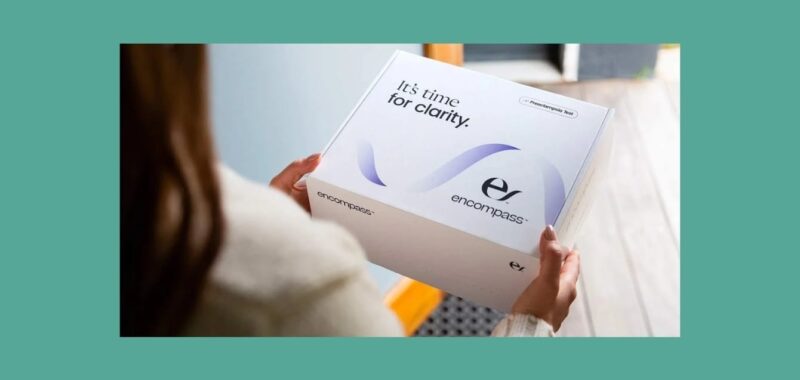For parents-to-be, pregnancy often brings a mix of excitement and worry—especially when it comes to unexpected complications. One of the most serious is preeclampsia, a condition that affects 1 in 12 pregnancies and can pose risks to both mom and baby.
Until recently, preeclampsia could only be diagnosed after symptoms appeared. But now, researchers are exploring ways to predict risk earlier. A newly launched at-home blood test, Encompass™, is one of the latest tools being studied to give families and providers a potential early warning—months before symptoms might develop.
Why early detection matters
Preeclampsia is marked by high blood pressure and signs of organ damage, usually after 20 weeks of pregnancy. For decades, prenatal care has relied on watching for signs and symptoms, which often limits options for early intervention.
The Encompass™ test analyzes cell-free RNA in a pregnant person’s blood to assess placental health and the biology of the developing pregnancy. In a study of nearly 11,000 pregnancies, the test identified 9 out of 10 pregnancies that later developed preterm preeclampsia as high risk, according to Mirvie. The company also reported that people with a “low-risk” result had a 99.7% chance of not developing preterm preeclampsia.
Related: A groundbreaking preeclampsia study could transform care for moms and babies
What this could mean for parents and providers
Experts say having the option to identify preeclampsia risk sooner could open the door for earlier monitoring and support.
“Patients should know their preeclampsia risk before it becomes a crisis. The prenatal care model—designed nearly 100 years ago to manage preeclampsia—has remained largely unchanged. Encompass is a paradigm shift based on an increased understanding of the underlying biology of pregnancy,” said Dr. Thomas McElrath, Vice President of Clinical Development at Mirvie and a practicing maternal-fetal medicine physician at Brigham and Women’s Hospital, in a press release.
If risk is identified early, care teams may recommend additional monitoring, lifestyle modifications, or medications to help reduce the chances of complications.
Related: “It’s so scary”: Meghan Markle shares her postpartum preeclampsia story—and the pressure to show up anyway
A promising, but emerging, tool
It’s important to note that Encompass™ is a new tool and not yet part of standard prenatal screening guidelines. Parents interested in this or any emerging test should talk with their healthcare provider to understand what’s right for their pregnancy.
While no test can guarantee outcomes, research into early detection tools like Encompass™ reflects growing efforts to make pregnancy safer and less stressful for families in the future.

